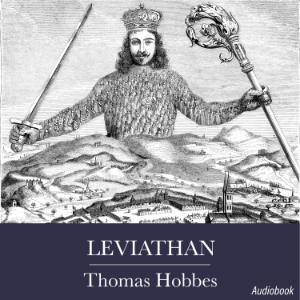

Leviathan
Thomas Hobbes
Leviathan is a book written by Thomas Hobbes and published in 1651. It is one of the most important works in political philosophy and is considered a cornerstone of modern political thought.
The main argument of Leviathan is that humans are fundamentally selfish and violent, and that without a strong government to control them, they would inevitably descend into a state of chaos and conflict. Hobbes famously characterized this state as "the war of all against all."
In order to avoid this scenario, Hobbes argued that individuals must surrender their natural rights to a sovereign authority. This sovereign, which Hobbes called the Leviathan, would have absolute power to enforce its will upon the people, and in exchange would provide them with security and protection.
Hobbes believed that the ideal form of government was an absolute monarchy, where the sovereign's power was not limited by any laws or institutions. He argued that any attempt to limit the power of the sovereign would be doomed to failure, as it would only lead to the re-emergence of the state of nature and the breakdown of society.
Leviathan is also notable for its contributions to social contract theory, which argues that individuals enter into a contract with their government in order to protect their rights and maintain order in society. Hobbes' social contract theory was influential in the development of political thought and continues to be studied and debated today.
Duration - 20h 27m.
Author - Thomas Hobbes.
Narrator - Liam Johnson.
Published Date - Tuesday, 03 January 2023.
Copyright - © 2023 Loudly ©.
Location:
United States
Description:
Leviathan is a book written by Thomas Hobbes and published in 1651. It is one of the most important works in political philosophy and is considered a cornerstone of modern political thought. The main argument of Leviathan is that humans are fundamentally selfish and violent, and that without a strong government to control them, they would inevitably descend into a state of chaos and conflict. Hobbes famously characterized this state as "the war of all against all." In order to avoid this scenario, Hobbes argued that individuals must surrender their natural rights to a sovereign authority. This sovereign, which Hobbes called the Leviathan, would have absolute power to enforce its will upon the people, and in exchange would provide them with security and protection. Hobbes believed that the ideal form of government was an absolute monarchy, where the sovereign's power was not limited by any laws or institutions. He argued that any attempt to limit the power of the sovereign would be doomed to failure, as it would only lead to the re-emergence of the state of nature and the breakdown of society. Leviathan is also notable for its contributions to social contract theory, which argues that individuals enter into a contract with their government in order to protect their rights and maintain order in society. Hobbes' social contract theory was influential in the development of political thought and continues to be studied and debated today. Duration - 20h 27m. Author - Thomas Hobbes. Narrator - Liam Johnson. Published Date - Tuesday, 03 January 2023. Copyright - © 2023 Loudly ©.
Language:
English
Opening Credits
Duración:00:00:04
Chapter 1
Duración:00:05:06
Chapter 2
Duración:00:04:15
Chapter 3
Duración:00:12:30
Chapter 4
Duración:00:10:37
Chapter 5
Duración:00:19:05
Chapter 6
Duración:00:15:16
Chapter 7
Duración:00:23:10
Chapter 8
Duración:00:06:56
Chapter 9
Duración:00:25:14
Chapter 10
Duración:00:01:18
Chapter 11
Duración:00:18:50
Chapter 12
Duración:00:15:59
Chapter 13
Duración:00:29:10
Chapter 14
Duración:00:10:59
Chapter 15
Duración:00:24:33
Chapter 16
Duración:00:30:00
Chapter 17
Duración:00:10:05
Chapter 18
Duración:00:10:11
Chapter 19
Duración:00:20:22
Chapter 20
Duración:00:22:36
Chapter 21
Duración:00:19:24
Chapter 22
Duración:00:24:08
Chapter 23
Duración:00:27:09
Chapter 24
Duración:00:10:27
Chapter 25
Duración:00:14:05
Chapter 26
Duración:00:16:40
Chapter 27
Duración:00:45:48
Chapter 28
Duración:00:33:10
Chapter 29
Duración:00:18:34
Chapter 30
Duración:00:24:03
Chapter 31
Duración:00:35:24
Chapter 32
Duración:00:25:42
Chapter 33
Duración:00:11:14
Chapter 34
Duración:00:24:52
Chapter 35
Duración:00:28:42
Chapter 36
Duración:00:17:32
Chapter 37
Duración:00:37:29
Chapter 38
Duración:00:16:38
Chapter 39
Duración:00:36:38
Chapter 40
Duración:00:06:02
Chapter 41
Duración:00:24:33
Chapter 42
Duración:00:17:00
Chapter 43
Duración:02:48:54
Chapter 44
Duración:00:34:43
Chapter 45
Duración:00:59:48
Chapter 46
Duración:00:46:41
Chapter 47
Duración:00:42:25
Chapter 48
Duración:00:43:00
credits.mp3
Duración:00:00:04